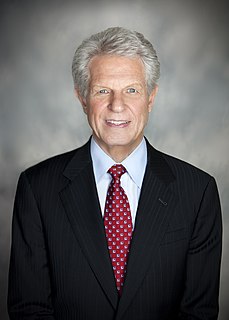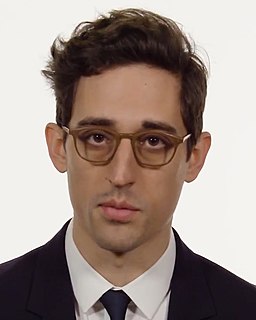A Quote by Walter Kaufmann
Philosophy means liberation from the - routine, soaring above the well known, seeing it in new perspectives, arousing wonder and the wish to fly.
Quote Topics
Related Quotes
When a really new product comes along, it's almost always a mistake to hang a well-known name on it. The reason is obvious. A well-known name got well-known because it stood for something. It occupies a position in the prospect's mind. A really well-known name sits on the top rung of a sharply defined ladder. The new product, if it's going to be successful, is going to require a new name. New ladder, new name. It's as simple as that.
For myself, as, no doubt, for most of my contemporaries, the philosophy of meaninglessness was essentially an instrument of liberation. The liberation we desired was simultaneously liberation from a certain political and economic system and liberation from a certain system of morality. We objected to the morality because it interfered with our sexual freedom.
Philosophy by showing - including philosophy in literature - does truly valuable work in leading us to new perspectives from which our arguments can then begin. It does so by introducing new synthetic complexes, which we then reflect on from various points of view. When the complexes survive and grow, that initial showing has been philosophically decisive.
When one begins to reflect on philosophy—then philosophy seems to us to be everything, like God, and love. It is a mystical, highly potent, penetrating idea—which ceaselessly drives us inward in all directions. The decision to do philosophy—to seek philosophy is the act of self-liberation—the thrust toward ourselves.
Aristotle said that philosophy begins in wonder. I believe it also ends in wonder. The ultimate way in which we relate to the world as something sacred is by renewing our sense of wonder. That's why I'm so opposed to the kind of miracle-mongering we find in both new-age and old-age religion. We're attracted to pseudomiracles only because we've ceased to wonder at the world, at how amazing it is.
My idea of philosophy is that if it is not relevant to human problems, if it does not tell us how we can go about eradicating some of the misery in this world, then it is not worth the name of philosophy. I think Socrates made a very profound statement when he asserted that the raison d'etre of philosophy is to teach us proper living. In this day and age 'proper living' means liberation from the urgent problems of poverty, economic necessity and indoctrination, mental oppression.
I had motives for not wanting the world to have meaning; consequently assumed that it had none, and was able without any difficulty to find satisfying reasons for this assumption ... For myself, as no doubt, for most of my contemporaries, the philosophy of meaninglessness was essentially an instrument of liberation. The liberation we desired was simultaneous liberation from a certain political and economic system, and liberation from a certain system of morality. We objected to the morality because it interfered with our sexual freedom.
I wish I'd known from the beginning that I was born a strong woman. What a difference it would have made! I wish I'd known that I was born a courageous woman; I've spent so much of my life cowering. How many conversations would I not only have started but finished if I had known I possessed a warrior's heart? I wish I'd known that I'd be born to take on the world; I wouldn't have run from it for so long, but run to it with open arms.








































